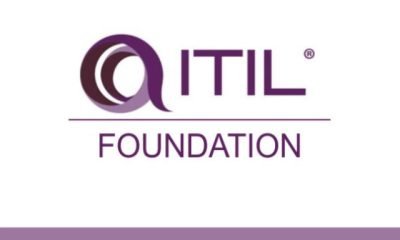Health
Power Nap: What It Is


Have you ever found yourself half asleep, with your head dangling, during a lesson? When you awoke embarrassed, did you feel partially recharged with energy? Here, this is a power nap for you.
Basically, it’s nothing more than a nap. This practice was born and developed in America, where now there are many companies that not only allow employees to take a nap, but also provide real spaces dedicated to the purpose. This is because positive effects have been found in employees who take 15 or 20 minutes to take a nap in moments of severe fatigue. Much better than a coffee!
The power nap, “rest that strengthens”, has been “designed” specifically to allow you to quickly recharge your energy and thus help the brain to work better, improve concentration, memory, and even mood because after a break regenerating you are certainly happier. All without the risk of waking up dazed and dazed after having slept too much.
We would also like to give you another tip which is not about sleep but also night helps you with your academic load. It is really helpful if you have an essay writing service online, to which you can turn when you are running out of time on your essays.
How Much Sleep?
There are different schools of thought on how good it is to sleep to properly benefit from the real effects of the power nap. I suggest you take a nap that goes from 15 to 20 minutes.
There are also shorter “options” such as the nano nap of 2 to 5 minutes. What is certain is that this time will hardly be enough for you to fall asleep. Then you can use the nano nap to briefly enter a state of relaxation which helps to help you recharge your batteries a little.
It can be a bit “dangerous” to go beyond 20 minutes. Already after 30, waking up is more difficult. Absolutely to avoid are the 60 and 90 minutes after which we no longer speak of nap, but real deep sleep!
Getting up, perhaps in the middle of the afternoon, from a deep sleep throws you into that state of “God, who am I, where am I, what year is it, why do I have drool on my chin?”. It’s almost worse than not having slept at all, because getting rid of this sense of fatigue and dullness won’t allow you to quickly get on the books, going against the purpose of the power nap.
How to Do an Ideal Power Nap
When you are on the books and feel a sense of heaviness and sleepiness, it is the right time to do the power nap. Let’s see how! We have said that “nap” means nap, but you don’t have to sleep, it will also be useful to just drop yourself into a state of relaxation.
The first thing to do is to find a place. Bed, sofa, armchair, chair… wherever you like! You put yourself there, set the alarm that will remind you to get up, but then you put the silence on your cell phone and don’t touch it anymore so that nothing and nobody can distract you from your moment of relaxation.



You close your eyes, let yourself go, think of something beautiful and at this point, if you are so tired, you will fall asleep. At the end of your 20 minutes, the alarm will sound, and it is very important to get up on the first try without indulging in the desire to get some more sleep. To do this you can use the 5-second rule (you can find it among the free resources).
Then you get up, move and stretch to reactivate the circulation. Maybe you rinse your face and then drink a nice glass of cool water to rehydrate. You will see that once you get up you will immediately feel more energetic and rested!
The all-around tip is to drink coffee or green tea before taking your nap. In fact, caffeine does not act immediately, it takes some time to be absorbed. The time it takes for you to rest and take effect when you wake up. So, if you take some before the 20 minutes power nap, once you get up you will feel even more invigorated and that will be the right time to start your afternoon study session.
After a Power Nap
Once awakened from the power nap you put yourself on the books. But remember to study in cycles, because too many consecutive hours spent studying contribute to drowsiness and tiredness.
As I have said many other times, the ideal is to follow study cycles which, being interspersed with the right breaks, allow you to keep your attention high and not overload your brain. Do 40-minute study sessions, then take a nice 10/15 minute break to disconnect, and before starting over, spend 5 minutes reviewing.
So, here’s a quick way to quickly recharge your energy when you’re sleepy and don’t feel like studying. Remember, however, that the power nap cannot in any way replace a good and sacrosanct dose of serious and well-done sleep. So, try to sleep the right hours during the night, avoiding staying up for the mad and desperate study at the last minute!


Health
Educational Initiatives for Philadelphia Healthcare Professionals to Prevent Malpractice


In the dynamic and high-stakes environment of healthcare, continuous education, and training are essential for professionals aiming to provide the highest standard of care and minimize the risk of medical malpractice.
Philadelphia, a city known for its prestigious medical institutions and hospitals, is at the forefront of implementing educational initiatives designed to enhance patient safety and reduce errors.
These programs not only benefit healthcare providers by expanding their knowledge and skills but also play a critical role in safeguarding patient well-being.
For individuals affected by medical malpractice, understanding the role of these educational initiatives can offer insight into the standards of care they should expect. Consulting with a Philadelphia medical malpractice lawyer can provide victims with the necessary information on how deviations from these standards may contribute to legal claims.
As the medical field evolves, so too does the legal landscape, making it crucial for healthcare professionals and patients alike to stay informed about the latest developments in patient care and malpractice prevention.
Simulation-Based Training Programs
Simulation-based training has become a cornerstone of medical education, offering healthcare professionals a risk-free environment to practice procedures, diagnose conditions, and make critical decisions.
By replicating real-life medical scenarios through advanced technology, such as mannequins and virtual reality, practitioners can hone their skills, learn from mistakes, and improve their clinical judgment without putting patients at risk.
Philadelphia’s medical schools and hospitals have integrated these simulations into their training regimens, recognizing the value of experiential learning in enhancing patient care and reducing errors.
These programs are particularly effective in preparing medical staff for emergencies, complex surgeries, and rare conditions that they may not encounter frequently in clinical practice.
The feedback and assessment provided during simulation exercises are invaluable for personal development and team collaboration, ensuring that healthcare professionals are better equipped to handle challenging situations in real-world settings.
As a result, simulation-based training is a critical component in the ongoing effort to prevent medical malpractice and improve patient outcomes.
Continuing Medical Education (CME) Courses
Continuing Medical Education (CME) courses are a requirement for healthcare professionals seeking to maintain their licensure and certification. These courses offer up-to-date information on the latest medical advancements, treatment protocols, and healthcare technologies, ensuring that providers stay informed about current best practices.
In Philadelphia, hospitals, medical associations, and academic institutions offer a wide range of CME opportunities, covering diverse specialties and areas of interest.
The emphasis on lifelong learning through CME reflects the understanding that medicine is an ever-evolving field.
By actively participating in these educational opportunities, healthcare professionals can keep their knowledge base current, adapt to new developments in patient care, and minimize the likelihood of errors that could lead to malpractice claims.
Furthermore, CME courses often include topics directly related to patient safety, ethics, and legal aspects of healthcare, providing a holistic approach to professional development.
Interdisciplinary Team Training
Interdisciplinary team training programs focus on enhancing communication and collaboration among various healthcare professionals, including doctors, nurses, pharmacists, and support staff. Effective teamwork is crucial in a complex healthcare system, where miscommunication and misunderstandings can lead to errors and adverse patient outcomes.
By fostering a culture of open dialogue and mutual respect, these training initiatives aim to improve the coordination of care and ensure that all team members are aligned in their approach to patient safety.
Philadelphia’s healthcare institutions have recognized the value of interdisciplinary training in promoting a cohesive care environment. Workshops, seminars, and team-building exercises are regularly conducted to strengthen the dynamics within medical teams, emphasizing the shared responsibility for preventing malpractice.
These initiatives not only enhance patient care but also contribute to a more positive and supportive workplace atmosphere, ultimately benefiting both providers and patients.
Patient Safety and Risk Management Education
Dedicated programs on patient safety and risk management are essential components of medical education, aimed at identifying, evaluating, and mitigating risks that could lead to malpractice.
These courses cover a broad spectrum of topics, including informed consent procedures, accurate documentation practices, and strategies for disclosing medical errors. For healthcare professionals in Philadelphia, such education is integral to developing a proactive approach to preventing malpractice, ensuring that potential issues are addressed before they escalate into serious problems.
Risk management education also emphasizes the importance of a systematic approach to error analysis, encouraging healthcare institutions to learn from incidents and implement changes to prevent recurrence. By ingraining these principles into the fabric of healthcare practice, Philadelphia aims to lead by example in establishing high standards for patient safety and malpractice prevention.
Embracing Digital Health Innovations
The integration of digital health innovations into medical practice is an emerging focus of educational initiatives aimed at preventing malpractice. Healthcare apps, electronic health records (EHRs), and telemedicine platforms are increasingly being adopted to enhance patient care and safety.
Philadelphia’s healthcare community is at the forefront of this digital transformation, offering training sessions and workshops for professionals to effectively utilize these technologies. By familiarizing themselves with digital tools, healthcare providers can minimize errors related to manual record-keeping, improve patient communication, and facilitate better coordination of care.
These technologies also offer the potential for real-time monitoring of patient health, predictive analytics for disease prevention, and personalized medicine. However, their successful implementation relies on healthcare professionals’ ability to navigate these digital platforms competently.
As such, educational programs are expanding their curricula to include digital literacy and data security practices, ensuring that providers are not only adept at using technology to enhance patient care but also vigilant in protecting patient privacy and sensitive medical information.
Fostering a Culture of Accountability and Transparency
Another critical aspect of preventing medical malpractice involves fostering a culture of accountability and transparency within healthcare organizations. Educational programs in Philadelphia are increasingly focusing on ethical practice, encouraging healthcare professionals to take responsibility for their actions and openly communicate with patients, especially when errors occur.
Workshops on ethical decision-making, patient rights, and the importance of clear, compassionate communication are becoming staples in medical training, aiming to build trust between providers and patients.
Creating an environment where mistakes are openly discussed and analyzed without fear of retribution is essential for learning and improvement. Healthcare professionals are encouraged to report near misses and errors, which can then be used as educational tools to prevent similar incidents in the future.
This approach not only helps in reducing the occurrence of malpractice but also strengthens the overall healthcare system by promoting continuous learning and improvement. Through these initiatives, Philadelphia aims to lead by example, showing that a commitment to education, ethics, and patient-centered care is the foundation of a safe and effective healthcare system.
Health
Smile Brighter: Unlocking New Career Opportunities with an Online Dental Assistant Course


The healthcare industry is witnessing an unprecedented shift towards digital education, transforming how professional skills are acquired and developed. This digital evolution is particularly significant in specialized fields like dental assistance, where the demand for skilled professionals continues to grow.
Online education platforms are playing a pivotal role in this transformation, offering accessible and flexible learning options that were once unimaginable. These platforms have made it possible for individuals to pursue new career paths and enhance their skills without the constraints of traditional classroom learning.
Taking up an online dental assistant course represents a significant step towards a career in the vibrant world of healthcare. It’s an opportunity to gain comprehensive knowledge and essential skills in a field that is both challenging and rewarding.
The flexibility and convenience of online learning make these courses particularly appealing, offering a modern approach to education that fits into the busy lives of aspiring dental professionals.
Through these courses, students can start on a journey of personal and professional growth, unlocking new career opportunities and the potential to positively impact the dental health community.
The Digital Edge in Dental Assistance Education
The advent of online education has revolutionized the way we approach learning, especially in specialized fields like dental assistance. This digital shift brings a host of benefits that enhance the educational experience, making it more adaptable and resource-rich than ever before.
Let’s explore the key aspects that give online dental assistant courses their unique edge.
- Access to Expert Knowledge and Resources
Online courses in dental assistance offer unprecedented access to expert knowledge and a wide array of digital resources. Learners have the opportunity to engage with expert lectures, interactive learning modules, and a diverse range of online materials. This access ensures that students receive an educational experience that is as rich and comprehensive as what is offered in traditional classroom settings.
- Flexibility and Convenience
Flexibility is one of the most significant advantages of online learning. These courses allow students to balance their studies with personal and professional responsibilities. This level of convenience makes the courses accessible to a broader range of students, including those who might find it challenging to attend in-person classes due to work commitments, family obligations, or living in remote areas.
- Enhanced Learning Through Technology
The integration of technology in online dental assistant courses significantly enhances the learning process. Innovative tools such as virtual simulations, interactive case studies, and online collaboration platforms enable students to grasp complex concepts more effectively. This technology-driven approach not only enriches the learning experience but also prepares students for a technologically advanced workplace.
Comprehensive Curriculum and Skill Development
Online dental assistant courses boast a comprehensive curriculum that spans a wide array of crucial topics. The content ranges from patient care techniques and dental procedures to the nuances of dental office management. This ensures that students receive a well-rounded education, arming them with the theoretical knowledge necessary to excel in the field of dental assistance.
In addition to theoretical learning, these courses place a significant emphasis on skill development. This is achieved through a variety of hands-on experiences, which are crucial for translating theoretical knowledge into practical application. The skills gained are directly applicable in a modern dental workplace, preparing students for the realities of their future profession.
To provide practical experience, many online courses utilize virtual simulations and interactive exercises. These cutting-edge methods allow students to engage in realistic scenarios, enhancing their ability to develop essential practical skills.
Such experiences are instrumental in preparing students for the real-world demands of dental assistance, bridging the gap between classroom learning and on-the-job performance.
Career Prospects and Industry Demand
The career prospects for graduates of online dental assistant courses are both diverse and promising. These courses not only prepare students for the immediate demands of the dental field but also set them up for long-term career success.
Let’s explore the key career opportunities and how they align with industry demands:
- A Stepping Stone to a Flourishing Career: Completing an online dental assistant course opens up a variety of career paths. Graduates are well-equipped for roles in different settings such as private dental practices, hospitals, and dental care facilities, thanks to the comprehensive training they receive.
- Meeting the Demand for Skilled Professionals: There is a consistent demand for skilled dental assistants in the industry. An online qualification positions graduates to fulfill this need effectively, allowing them to contribute their expertise to a sector that highly values skilled professionals.
- Advancement into Higher Roles: Beyond entry-level positions, these courses also lay the groundwork for career advancement. Graduates have the potential to progress into higher roles within the dental field, such as office management, dental sales, or even further education and specialization.
Networking and Professional Growth
Networking and professional growth are key components of online dental assistant courses. These programs frequently include features like community forums and opportunities for networking, which are essential for building connections within the dental community.
Through these platforms, students can engage with peers and experienced professionals, fostering relationships that are invaluable for career advancement and potential collaborative projects. Such networks can be a significant asset throughout one’s career, offering support, guidance, and opportunities for professional development.
The field of dental assistance is dynamic, with continuous advancements in technology and practices. Online courses are designed to cater to this evolving nature, providing pathways for ongoing learning and development.
This aspect of the courses ensures that graduates remain up-to-date and competent in the ever-changing landscape of dental healthcare. Continuous learning is integral to maintaining professional relevance and enhancing skills, which is crucial for long-term success in the field.
Embracing a Future in Dental Healthcare
Choosing an online dental assistant course is a smart decision for those looking to enter or progress in the healthcare sector. These courses not only provide comprehensive training but also offer the flexibility and opportunities needed to succeed in today’s fast-paced world.
Graduates emerge with the skills, knowledge, and connections necessary to thrive in the dental industry, ready to make a positive impact on patient care and experience a rewarding career.
Health
Is Your Full Body Checkup Package Comprehensive Enough? 15 Key Features to Look for


When it comes to maintaining good health, getting a comprehensive full-body checkup is essential. It provides valuable insights into your overall well-being and helps detect potential issues related to your body early on.
So, in this article, you’ll explore 15 key features to look for in a package based on a full body checkup at home to ensure it covers all your health needs.
1. Wide Range of Tests
A Comprehensive Full Body Checkup should encompass a wide range of tests, from basic blood work to specialized screenings for various parameters. This ensures that your health is thoroughly evaluated and any underlying issues can be addressed promptly, promoting overall well-being and peace of mind.
2. Basic Blood Tests
These tests, including complete blood count (CBC) and lipid profile, provide vital information about your overall health. So, regular monitoring of these parameters allows you to track your progress over time and make necessary adjustments to your lifestyle, ultimately contributing to a healthier and more fulfilling life.
3. Advanced Lipid Profile
A more detailed lipid profile helps assess your cholesterol levels and risk of heart disease. Understanding your lipid profile can motivate you to make dietary changes and adopt a heart-healthy lifestyle, further enhancing your chances of long-term health and well-being.
4. Blood Pressure Measurement
Regular monitoring of blood pressure is crucial for detecting hypertension, a common concern. It helps you keep tabs on your cardiovascular health and take preventive measures if needed. So, by staying informed about your blood pressure, you can work towards maintaining optimal heart rate and reducing the risk of related complications in the future.
5. Blood Sugar Tests
Diabetes is a growing health issue, so including fasting and post-meal blood sugar tests is essential. Full Body Checkup Plans can help you catch diabetes in its early stages and guide you in managing your blood sugar levels effectively. Early intervention and proper management can significantly improve your quality of life and reduce the risk of diabetes-related complications.
6. Liver Function Tests
Evaluating liver function can detect liver diseases and ensure optimal liver health. Knowledge of your liver’s condition empowers you to make dietary and lifestyle choices that support liver function. Regular assessments of liver function are crucial for maintaining overall well-being and preventing liver-related issues in the long run.
7. Kidney Function Tests
Include Kidney function tests in your Full Body Checkup Checklist as they assess the well-being of your kidneys, which play a vital role in filtering toxins from your body. Regular kidney function evaluations help identify issues early and protect your renal health. Monitoring kidney function is essential for maintaining the overall body and preventing kidney-related complications.
8. Thyroid Function Tests
Thyroid disorders can impact various bodily functions, so thyroid function tests should be included. Managing thyroid health is key to maintaining overall well-being. Regular assessments of thyroid function can help detect and address any thyroid-related issues early, ensuring optimal vitality.
9. Complete Urine Analysis
This test helps identify kidney and urinary tract problems and may also detect signs of diabetes. It provides valuable information about your urinary well-being, which is often overlooked.
10. Electrocardiogram (ECG)
An ECG measures heart activity and is crucial for identifying heart-related issues. Regular ECGs can track changes in your heart’s electrical patterns and aid in the early detection of heart problems.
11. Chest X-Ray
A chest X-ray can detect lung and heart problems, making it an important part of a comprehensive checkup. It offers a visual assessment of your chest area, helping to spot abnormalities.
12. Bone Density Scan
For older adults, assessing bone density can help in the early detection of osteoporosis. Regular bone density scans can guide you in preventing fractures and maintaining strong bones.
13. Vision and Hearing Tests
Vision and hearing assessments are crucial for maintaining sensory health. They enable you to address vision or hearing impairments and enhance your overall quality of life.
14. Body Mass Index (BMI) Calculation
BMI calculation helps evaluate your weight and assess the risk of obesity-related conditions. Monitoring your BMI can motivate you to make healthier lifestyle choices.
15. Nutritional Counseling
Guidance on proper nutrition and lifestyle habits can help you make healthier choices. It equips you with the knowledge to maintain a balanced diet and overall wellness.
Conclusion
Choosing the right full body checkup at home is vital for maintaining your health and well-being. Look for a package that offers these 15 key features to ensure comprehensive coverage of your needs.
Regular checkups help in the early detection of issues and empower you to take proactive steps toward a healthier future. Prioritize your well-being and make informed decisions when selecting a full body checkup package.
Remember, your health is your most valuable asset, and investing in regular checkups is an investment in a healthier, happier life.



 Health11 months ago
Health11 months ago6 Best Ways to Get Quality Sleep



 Social Media12 months ago
Social Media12 months agoLinda Yaccarino: Twitter’s New CEO from NBCUniversal



 Work11 months ago
Work11 months agoFive Things Employees Look for in a Job Role



 shopping12 months ago
shopping12 months agoEssential Tips for Buying Jewelry Online



 Tech12 months ago
Tech12 months agoWhat Are the Advantages of ITIL Foundation Certification for Organizations?



 Education9 months ago
Education9 months ago7 Tips for Writing Short Stories That Captivate and Resonate



 Entertainment11 months ago
Entertainment11 months ago5 Famous Gamblers and Their Most Memorable Quotes



 Business11 months ago
Business11 months agoHow to Design and Create a Poster from Scratch




















